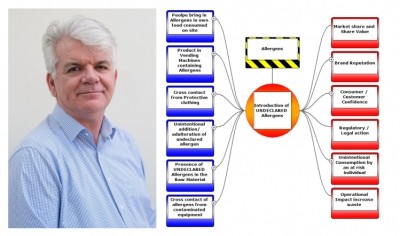Consumer confidence in food safety strong as new FSA code published

The FSA has published its latest findings of the Food and You 2 survey, which measured self-reported knowledge, attitudes and behaviours related to food safety and other food issues among adults in England, Wales and Northern Ireland.
More than nine in 10 (93%) respondents said they were confident that the food they bought was safe to eat, while 89% said they were confident that the information on food labels was accurate. Support for the industry was high, with 77% of respondents saying they had confidence in the food supply chain.
Further to this, most respondents (88%) said they had no concerns about the food they eat. Of the remaining 12%, the areas that prompted the most concern were the amount of sugar in food (60%), food waste (60%) and animal welfare (57%).
Other key findings included: Fewer than one in 10 respondents (9%) reported that had a food intolerance; three fifths (60%) of respondents had eaten food which was ordered from a takeaway either ordered directly or via an online delivery company; and more than six in 10 (62%) respondents reported that they always check use-by dates before they cook or prepare food.
Consumer concerns
Commenting on the responses, FSA chief executive Emily Miles said: “When prompted, respondents told us they were most concerned about the amount of sugar in food, food waste and animal welfare.
“Hypersensitive and allergic consumers are telling us that they are not confident in the allergen information provided by online food providers (including food sharing apps and Facebook Marketplace). This remains an area of concern for the Food Standards Agency as a regulator and one we are working with industry to address.”
Research into consumer attitudes to food safety followed the publication of the FSA’s revised Food Law Code of Practice and Food Law Practice Guidance, as well as the introduction of a new Competency Framework for Wales.
Changes in this revision included a modernisation of the qualification requirements by extending the list of ‘suitable’ qualifications and replacing the existing competency requirements with the Competency Framework that defines competency by activity rather than by role. A full lsit of the changes can be found on the FSA’s website.
More flexibility
FSA Wales director Nathan Barnhouse said: “The revised Code, Practice Guidance and introduction of the Competency Framework will provide local authorities and port health authorities more flexibility to deploy key professionals and will enable them to recruit suitably qualified individuals to undertake specified activities, should they choose.
“This will help alleviate the challenges local authorities face in recruiting people to deliver their food service, whilst ensuring that consumers can continue to rely on food controls being carried out by suitably qualified people.”
Barnhouse said the changes would help alleviate the challenges local authorities face in recruiting people to deliver their food service, while ensuring that consumers can continue to rely on food controls being carried out by suitably qualified people.
“Over the next few years there will be further reviews of the Code to implement the FSA’s modernisation programme for reforming the regulatory delivery mode,” he added. “This will ensure a fit-for-purpose and sustainable regime that will protect consumers.”















